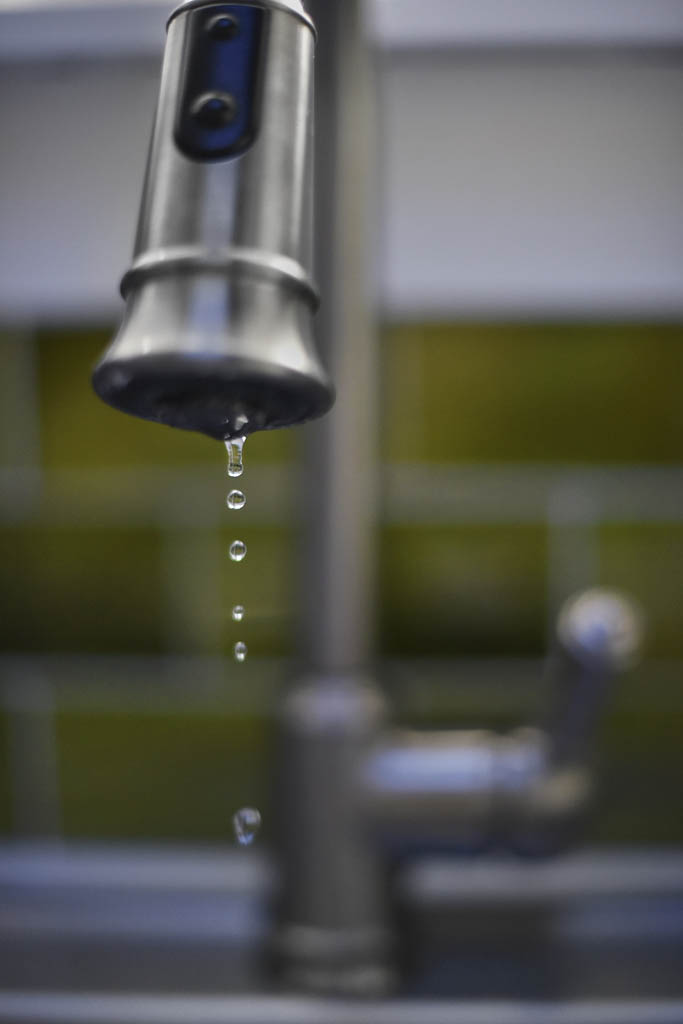The Bordentown City Board of Commissioners announced at their November meeting that the Department of Environmental Protection (DEP) is calling on the municipality to enact additional testing for lead in the water of homes.
At a Nov. 11 board meeting, Bordentown City Commissioner Joe Myers said that the municipality was recently required by DEP to conduct additional samplings within the homes of Bordentown residents who reported an exceedance for lead measurements in their water.
As part of this DEP mandate, the municipality had to amend its corrective action plan to address the issue of lead exceedances experienced throughout the city over the last year.
Although reports of lead exceedances in multiple Bordentown homes have been ongoing for more than a year when the matter arose in 2017, city officials said they have been working since to address this problem.
In addressing the matter, Myers said the municipality needed to implement a corrective action plan. The plan adopted by the city calls for four components: transparency, testing, education and equipment.
As part of enacting this plan, officials implemented improvements and upgrades to the city’s existing water treatment plant to ensure the distribution of safe drinking water to all households and businesses throughout its service area.
Officials said the city’s water engineer worked with the DEP to implement a corrosion control treatment plan and that an Optimal Corrosion Control Treatment plan was submitted for approval, meeting standards as set by the Environmental Protection Agency (EPA) and enforced by the DEP.
City officials said multiple tests conducted at the city’s main water source and water treatment plant, were reported with non-detectable lead levels, and to date, multiple digs have been conducted in the area to test the city’s water lines, which have all been reported as non-lead service lines with non-detectable readings as well.
As the search for the main cause of the reported lead issue within residences has the municipality and some homeowners turning their focuses to the fixtures of homes as a possible suspect, Myers said that the municipality has gathered data from voluntary tests on behalf of Bordentown residents as well as state-mandated samples that were taken.
Given the municipality’s stance on the matter, which officials said links the reported lead exceedances to inside the homes from potential issues with interior plumbing, Myers said the DEP recently called for the municipality to conduct additional samplings for lead from fixtures within the homes.
Officials said their data found 75% of homes that experienced an exceedance also have lead solder in their interior plumbing, which presents a potential issue for residents with homes built before 1988.
In homes built before 1988, lead piping and lead solder were commonly used in household plumbing systems as well as in service lines that connect homes to street water mains.
In 1986, the EPA banned the use of lead pipes and lead solder in plumbing systems because excessive lead levels can present dangerous health risks.
The EPA set an “action level” of .015 milligrams per liter of water for lead. EPA officials said that levels higher than that in water could pose a risk to human health.
“The water department met with the DEP, and they have asked us to amend our corrective action plan,” Myers said. “We put together a plan that looked at evaluating our system and put upgrades into our [water treatment] plant last year. We also started putting a product called orthophosphates into our system.
“The state has asked us to amend that plan. [DEP] has asked us to take additional sampling. So, what we have advocated for is that in addition to the state sampling we have typically done – we have sampled 427 homes over the past year – what we are asking for is that those samples will be able to be utilized within our new additional sampling in addition to other sampling the state has required,” Myers added.
The city commissioner explained that the DEP wants the municipality to increase its sampling size to gather more data, particularly within Bordentown homes that reported a lead exceedance.
Myers explained that it’s the municipality’s intent that the additional sampling mandated by the DEP will not only help the city gather more data on this matter, but will potentially link and confirm that the issue of lead exceedances can be traced to within Bordentown homes rather than the municipality’s services.
“What the [DEP] is saying is that if a homeowner had an exceedance, we want to take multiple samples of the home and multiple points within the home,” he said. “That can mean we take a sample from the kitchen sink, the bathroom sink or a half-bathroom. It’s to capture more results because we have started to assert this to an interior problem, so this will give us more information to validate that.”

